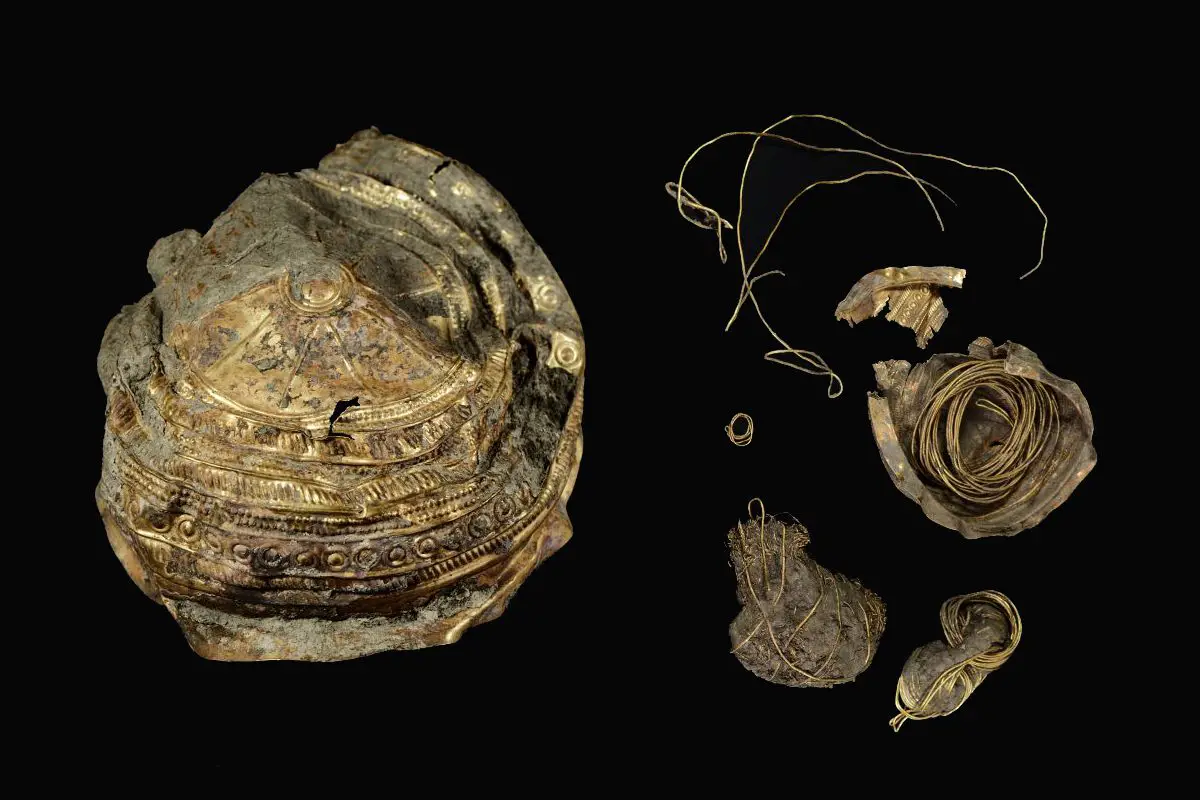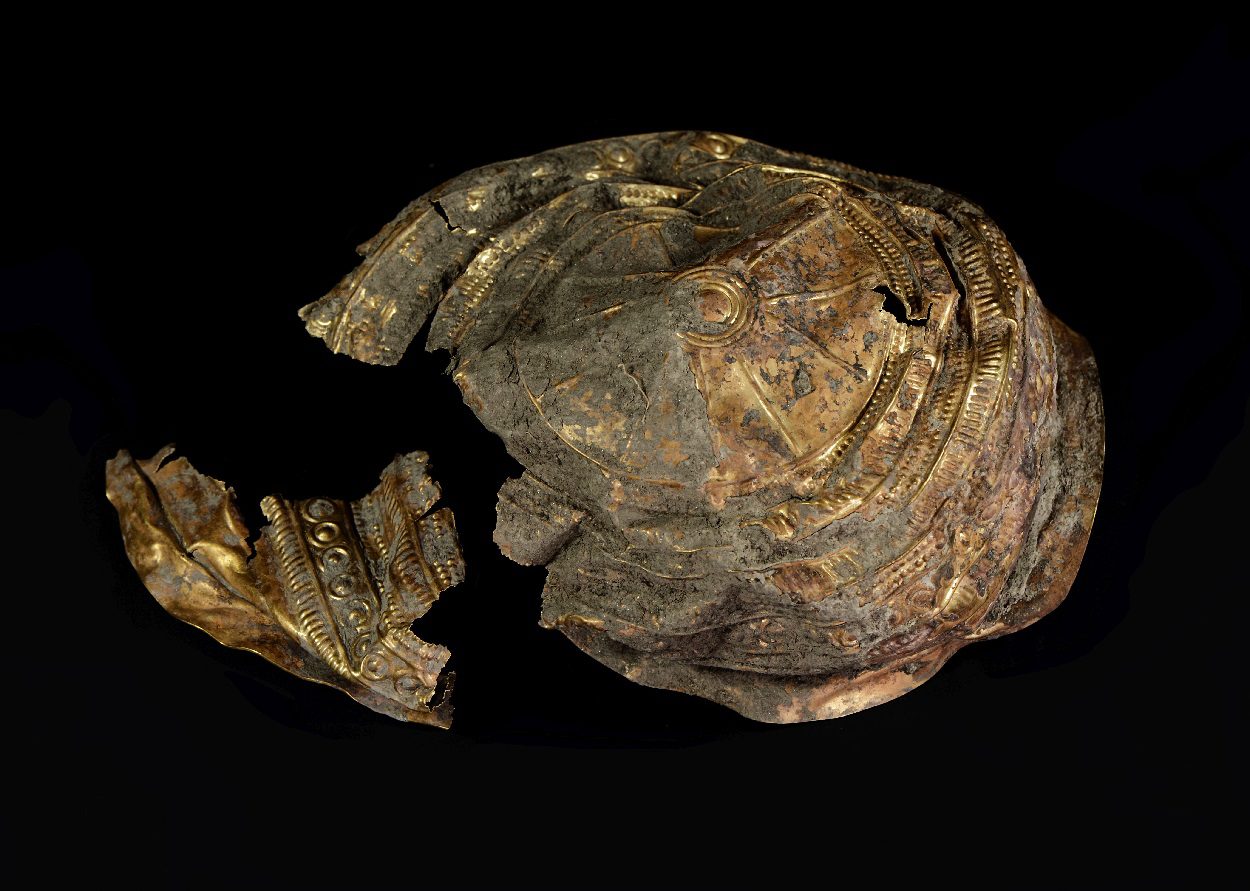Archaeologists conducting excavations in a prehistoric settlement in Ebreichsdorf, Austria, have discovered a golden sun bowl dating from 3,000 years ago.
Excavations in Ebreichsdorf have been carried out since September 2019, where archaeologists found an ancient settlement dating from between 1300-1000 BC, which researchers associate with the urn field culture (related to the cremation type of funeral rites).
The bowl was found close to the wall of a prehistoric house and is decorated with a sun motif depicting the rays of the sun. It is made of very thin sheet metal, consisting of approximately 90 percent gold, 5 percent silver, and 5 percent copper.
Inside the bowl was coiled golden wire wrapped with organic material clumps that was originally fabric sewn with gold thread. The research team suggests that the fabric could have been decorative scarves, used during religious ceremonies for the worship of the sun.

Archaeologist Dr. Michał Sip from Novetus said: “This is the discovery of a lifetime”, who believes that the bowl is one of the most important archaeological discoveries in Austria in recent decades.
The bowl is the first of its kind found in Austria, and the second to the east of the Alpine line, with only thirty or so such golden bowls ever being discovered throughout all of Europe.
Since excavations began in 2019, up to five hundred bronze objects consisting of pins, daggers, and knives, and various ceramic clay vessels, shells, and animal bones have been discovered near to the settlement.

It is suggested that these finds were deposited in an ancient swamp or dried up riverbed, and were thrown into the water during religious rituals by the inhabitants of the settlement.
The bowl will be placed on display at the Kunsthistorisches Museum in Vienna, with excavations of the settlement site to continue for the next six months.
Header Image Credit : Andreas Rausch





